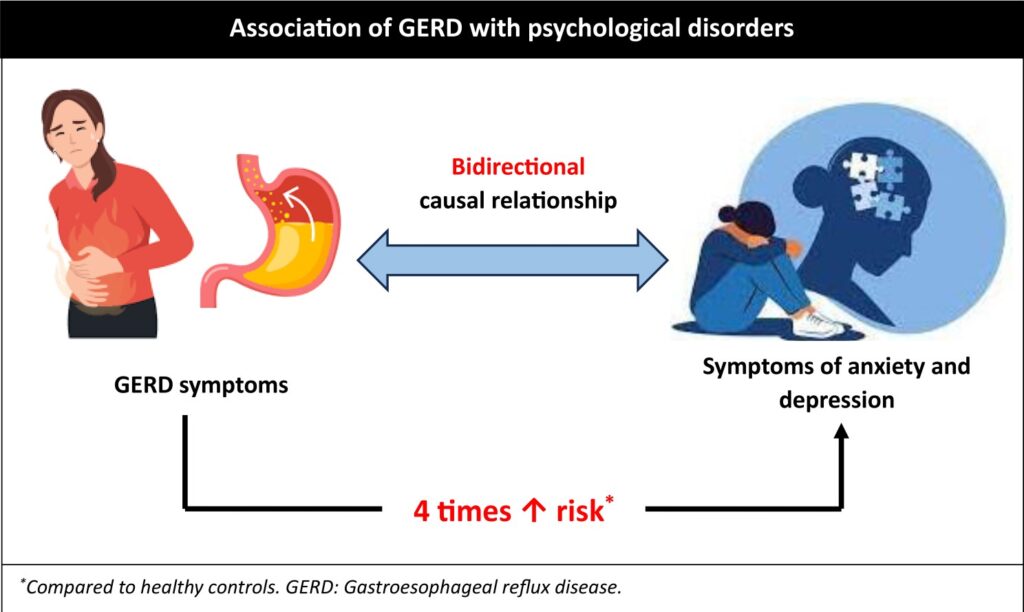
A close association between the brain and the gut is widely established in studies. Psychological disorders such as anxiety and depression affect a lot of people and are often related to many diseases of the digestive tract, including the gastroesophageal reflux disease (GERD). Evidence suggests that people with depression are 1.7 times more likely to develop GERD compared to those without depression. Psychological factors generally influence the severity of any functional gastrointestinal disorder such as GERD by affecting the pain perception through the gut-brain axis (a 2-way communication between the central and the enteric nervous systems) [1]. A recent study by Zamani et al., published in the “American Journal of Gastroenterology”, reported a bidirectional causal relationship between GERD and anxiety/depression [2].
This systematic review and meta-analysis included articles from databases, including Embase, PubMed, Scopus, and Web of Science from inception till 15th May 2023. Observational studies retrieved from the literature search reported the prevalence of anxiety and depressive symptoms diagnosed by validated questionnaires in more than 100 adults with GERD. Cohort studies were also included that demonstrated the risk of incident GERD in adults with anxiety or depression and vice versa cases. Further, Mendelian randomization studies were included that analyzed the cause-and-effect relationship between anxiety or depression and GERD. A total of 36 studies were included in the systematic review and meta-analysis, which were related to anxiety and depressive symptoms in individuals with GERD. The random-effects model was used to combine the extracted data [2].
The study results are summarized below [2]:
- The pooled prevalence of anxiety symptoms in individuals with GERD was 34.4%, while depressive symptoms were found in 24.2% of the GERD cases.
- Symptoms of anxiety and depression were higher in individuals with GERD compared to those without GERD. The odds ratio for GERD cases was 4.46, and for control, it was 2.56; it means individuals with GERD were 4 times higher risk of developing both anxiety and depressive symptoms compared to controls.
- Individuals with GERD were at an increased risk of developing anxiety and depression, and vice versa, establishing a bidirectional relationship of the two disorders, as per the results of 3 cohort studies (Graphic).
- A genetic connection between mood disorders and increased risk of GERD, and vice versa, were reported from 3 Mendelian randomization studies.

Clinical implications [1,2]:
- The study findings highlight the importance of recognizing the pathophysiological connection between GERD and psychological disorders. Clinically, it is necessary to assess and manage both conditions, if present, for better patient care.
- A holistic approach, early intervention, and interdisciplinary collaboration can improve the overall well-being and outcomes of individuals with GERD and psychological conditions.
References:
1. He M, Wang Q, Yao D, Li J, Bai G. Association between psychosocial disorders and gastroesophageal reflux disease: A systematic review and meta-analysis. J Neurogastroenterol Motil. 2022;28(2):212-21.
2. Zamani M, Alizadeh-Tabari S, Chan WW, Talley NJ. Association between anxiety/depression and gastroesophageal reflux: A systematic review and meta-analysis. Am J Gastroenterol. 2023. Doi: 10.14309/ajg.00000000000024
